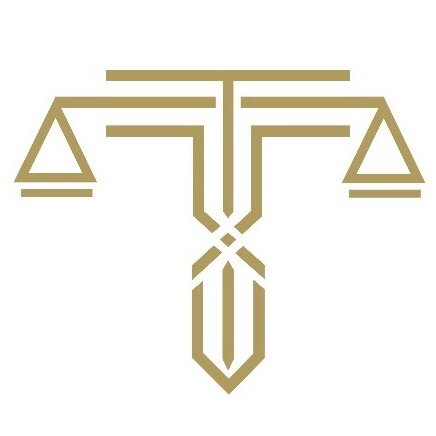Best Tax Lawyers in Dammam
Share your needs with us, get contacted by law firms.
Free. Takes 2 min.
List of the best lawyers in Dammam, Saudi Arabia
Saudi Arabia Tax Legal Articles
Browse our 2 legal articles about Tax in Saudi Arabia written by expert lawyers.
- Guide to VAT Registration for Businesses in Saudi Arabia
- For businesses operating within or expanding into the Kingdom of Saudi Arabia (KSA), navigating the requirements for Value Added Tax (VAT) is a critical aspect of financial and legal compliance. As legal advisors, understanding the intricacies of the VAT registration process in Saudi Arabia is essential for guiding clients effectively... Read more →
- How to Start a Business in Saudi Arabia
- Whether you are a local entrepreneur or an international investor, starting a business in Saudi Arabia can be an exciting and rewarding venture. However, knowing the legal requirements is crucial for a smooth, successful launch. In this guide, we will walk you through the key steps and legal issues that... Read more →
About Tax Law in Dammam, Saudi Arabia
The Kingdom of Saudi Arabia implemented a Value-Added Tax (VAT) regime in 2018 as part of its economic diversification plan, Vision 2030, to reduce dependency on oil revenue. Dammam, being an important city in the eastern province, adheres to these national tax regulations. The standard VAT rate is currently 15%. This system places responsibilities on businesses and individual taxpayers to comply with tax filing, documentation, and other regulatory requirements.
Why You May Need a Lawyer
Meeting tax obligations in Dammam can be complex due to the intricate details involved in the tax laws. Errors in tax filing or a discrepancy in tax payments can lead to penalties. It becomes essential to consult a legal expert if you run a business, as it carries significant responsibilities under Saudi VAT laws. An attorney's expertise can also be beneficial when reviewing or appealing tax assessments issued by the Saudi General Authority of Zakat and Tax (GAZT).
Local Laws Overview
The key aspects of local tax laws in Dammam, Saudi Arabia include the standard VAT rate, currently at 15%, and the tax obligations for businesses and individuals. Businesses are required to register for VAT, issue compliant invoices, and file regular tax returns. Certain goods and services are exempt or zero-rated, and specific provisions are in place for non-residents and intra-GCC transactions. Non-compliance with these obligations can lead to heavy fines and penalties, hence the necessity to understand and keep up-to-date with the tax legislations.
Frequently Asked Questions
1. Who is liable to pay VAT?
All businesses that supply taxable goods or services with an annual revenue exceeding SAR 375,000 must register for VAT and are obliged to pay it.
2. Are there any exemptions or reductions in VAT?
Yes, certain goods and services, such as medical and educational services, are zero-rated or exempt for VAT purposes, which means they are either not taxed or taxed at 0%.
3. What are the tax obligations for businesses?
Businesses must register for VAT, document all their sales and purchases accurately, file tax returns periodically, and issue compliant invoices.
4. What happens if someone fails to comply with tax laws?
Non-compliance with tax obligations can lead to penalties, including hefty fines and legal prosecution in severe cases.
5. How often does one need to file tax returns?
Businesses are required to file tax returns on a quarterly basis. However, larger businesses often have monthly tax periods.
Additional Resources
The Saudi General Authority of Zakat and Tax (GAZT) is the overarching body for all tax-related matters in Saudi Arabia. Its official website provides comprehensive information about tax regulations and offers resources, guidelines, and aids to assist taxpayers in their obligations. The Ministry of Finance's website is another valuable source for fiscal policies and regulations.
Next Steps
If you need legal assistance related to tax, identify reputable law firms or legal practitioners with specific expertise in Saudi tax law. It is crucial to bring all relevant documents for the consultation to facilitate your lawyer's understanding of your situation. By following expert advice, you can ensure compliance and navigate efficiently through Saudi's tax obligations.
Lawzana helps you find the best lawyers and law firms in Dammam through a curated and pre-screened list of qualified legal professionals. Our platform offers rankings and detailed profiles of attorneys and law firms, allowing you to compare based on practice areas, including Tax, experience, and client feedback.
Each profile includes a description of the firm's areas of practice, client reviews, team members and partners, year of establishment, spoken languages, office locations, contact information, social media presence, and any published articles or resources. Most firms on our platform speak English and are experienced in both local and international legal matters.
Get a quote from top-rated law firms in Dammam, Saudi Arabia — quickly, securely, and without unnecessary hassle.
Disclaimer:
The information provided on this page is for general informational purposes only and does not constitute legal advice. While we strive to ensure the accuracy and relevance of the content, legal information may change over time, and interpretations of the law can vary. You should always consult with a qualified legal professional for advice specific to your situation.
We disclaim all liability for actions taken or not taken based on the content of this page. If you believe any information is incorrect or outdated, please contact us, and we will review and update it where appropriate.














